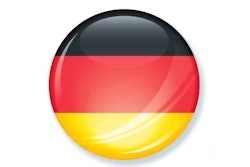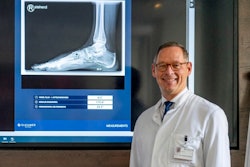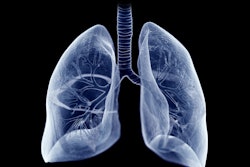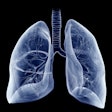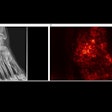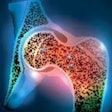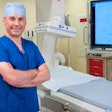German medical technologists for radiology (MTRs) are feeling the stress of an ongoing skilled worker shortage.
In an interview ahead of the RöKo Digital and the German Radiological Congress, Anton Quinsten, deputy chairman of the German Society of Medical Technologists for Radiology (DGMTR), said the shortage of skilled workers is one of the biggest challenges facing the MTR profession. The DGMTR is looking to remote scanning to increase efficiency and bridge that staffing shortage, he said.
 Anton Quinsten, deputy chairman of the German Society of Medical Technologists for Radiology (DGMTR).German Radiological Society
Anton Quinsten, deputy chairman of the German Society of Medical Technologists for Radiology (DGMTR).German Radiological Society
"The idea behind it is that an MRI technician can perform multiple MRI examinations simultaneously from a central location -- regardless of where the equipment or patients are located," Quinsten explained as part of a discussion of current challenges and opportunities for MTRs. "This means we can work more efficiently and reduce bottlenecks in care."
However, "there are still challenges, particularly with regard to direct patient contact," he continued. "It is important to find a sensible balance where we utilize the advantages of technology without losing sight of personal care."
It is now widely recognized that MTR is a serious profession, a fact even confirmed by the Federal Employment Agency (BfA), Quinsten said. "We are committed to ensuring that medical technicians who are already in the profession stay in their jobs long-term. Job satisfaction plays a key role here. Medical technicians are often on the front lines and must possess not only technical but also interpersonal skills."
Quinsten has advocated for flexible working hours, modern working conditions, continuing education and training in mental health, and a strong sense of community within the team. For MTRs, the upcoming RöKo2025 and 106th German X-ray Congress will address how to create a healthy working environment, promote mental health, reduce stress, and improve work-life balance.
In addition, Quinsten emphasized a strong focus on the use of AI in radiology, especially in the field of MTRs. "It's important to us that MTRs feel well looked after in all areas and are presented with both proven and forward-looking content," he said.
The DGMTR has also launched various initiatives -- such as films, information campaigns, and mentoring programs -- to inspire young people to pursue the profession.
"One important approach is not only to promote young talent in Germany but also to attract qualified specialists from abroad," Quinsten said. Ways to do that involve simplifying the recognition process for international MTRs so that they can gain a foothold in Germany more quickly. "Secondly, we are developing targeted programs to recruit international specialists and integrate them into our structures. We at DGMTR want to become a central contact point for international MTRs."
Read the original interview with Quinsten in German, here.




